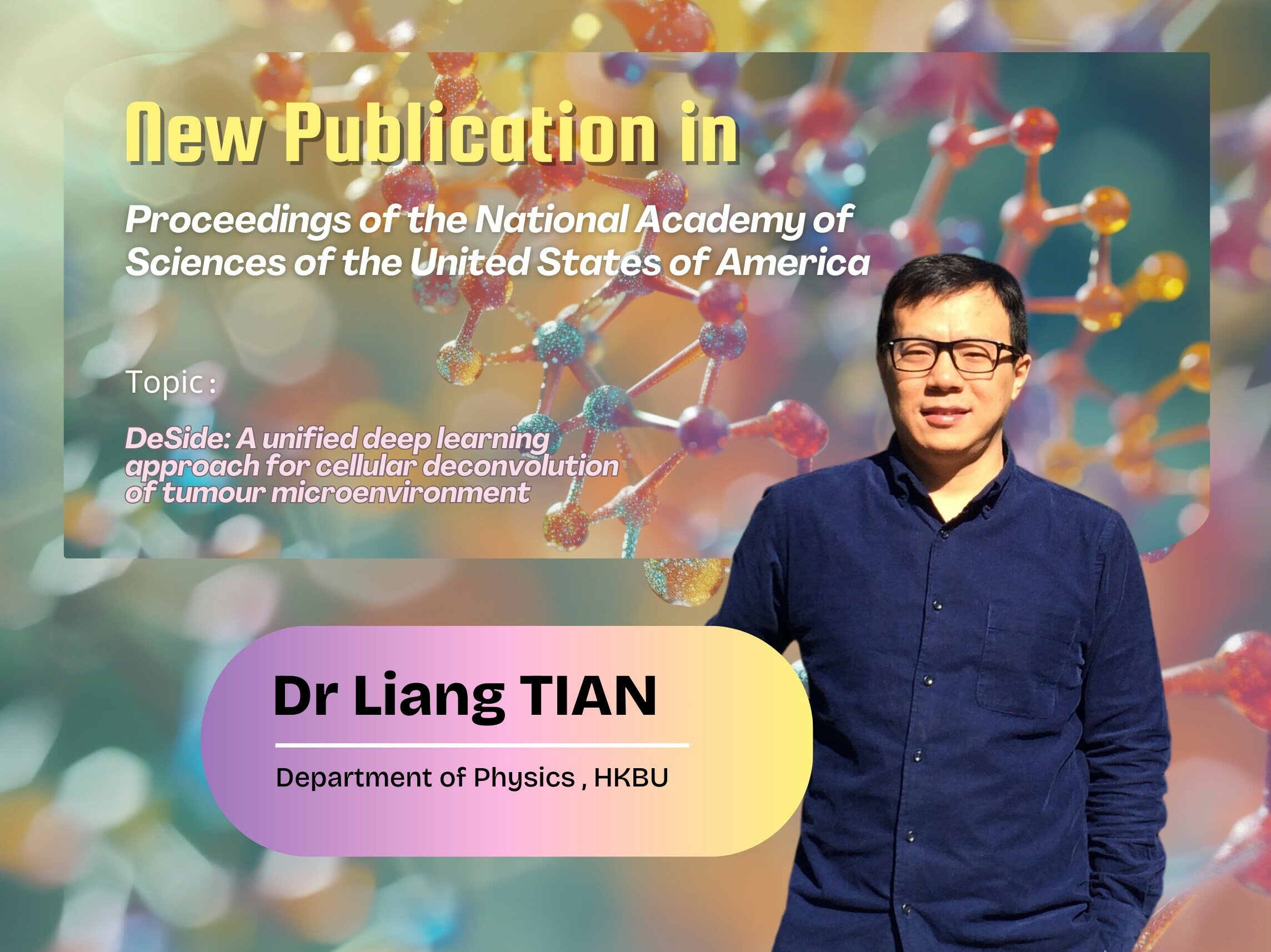Dr Liang TIAN and His Team Provide a Unified Deep Learning Approach for Cellular Deconvolution of Tumour Microenvironment
Dr Liang TIAN and His Team Provide a Unified Deep Learning Approach for Cellular Deconvolution of Tumour Microenvironment

Dr. Lian TIAN from the Department of Physics at Hong Kong Baptist University and his team has achieved a significant milestone with the development of a unified deep learning approach for cellular deconvolution of the tumor microenvironment (TME) named DeSide. This innovative research has been published in the prestigious Proceedings of the National Academy of Sciences of the United States of America (PNAS).
The tumor microenvironment is a complex interplay of various cell types, and accurately determining their abundance has been a significant challenge in cancer research. Dr. TIAN present methods to refine data simulation with real tumor data guidance to generate a modest training set and tailor a unified deep learning model to bypass the issue of highly variable gene expression in cancer cells.
DeSide demonstrates exceptional accuracy in estimating the proportions of 16 distinct cell types and subtypes within solid tumors. By integrating biological pathways and prioritizing the assessment of noncancerous cell types, the model sidesteps the variability associated with cancer cell gene expression profiles. The research team leveraged single-cell RNA-seq data from six cancer types and 185 cancer cell lines across 22 cancer types to create a high-quality training set that closely replicates real tumor gene expression profiles.
The DeSide model provides precise cell abundance estimation, this approach sheds light on cell type interactions in the TME and potentially improves clinical diagnosis. We extend our congratulations to Dr. TIAN's achievement and anticipate his continued impact!

